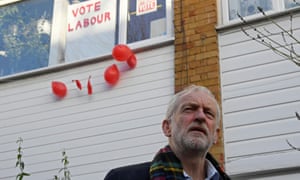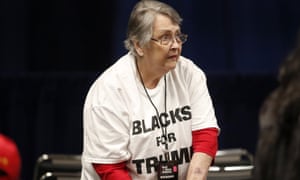Interview
Steve Bannon: 'We’ve turned the Republicans into a working-class party'

 Steve Bannon: ‘I think the Democrats ought to take the lessons of the working class. These are lifetime Labour members that voted for a Tory.’ Photograph: Lewis Joly/JDD/Sipa/Rex/Shutterstock
Steve Bannon: ‘I think the Democrats ought to take the lessons of the working class. These are lifetime Labour members that voted for a Tory.’ Photograph: Lewis Joly/JDD/Sipa/Rex/ShutterstockTue 17 Dec 2019 02.15 EST
The former White House strategist and far-right agitator hails the British election as a ‘victory for populism’ with lessons for the US
S
teve Bannon, the former White House chief strategist associated with global far-right nationalist movements, has urged Republicans to “find our AOCs” – a reference to the Democratic congresswoman Alexandria Ocasio-Cortez – to claim the mantle of the party of the working class.
In an interview with the Guardian at his Capitol Hill townhouse, Bannon, who helped shape the party in Donald Trump’s image, argued that Republicans have to fight back against the “perfect casting” of Democrats elected to Congress last year by boosting equivalents from their own ranks.
The combative 66-year-old is the former executive chairman of Breitbart News, which he once described as “the platform of the ‘alt-right’”, a movement that has embraced racism and antisemitism, and an ex-chairman of Donald Trump’s divisive 2016 election campaign.
His transition to a senior role at the White House was hailed as “excellent” by the former Ku Klux Klan leader David Duke and “amazing” by Peter Brimelow of the white nationalist site VDAR. Bannon left the administration in 2017 after playing a key role in the US president’s equivocation over a deadly white nationalist rally in Charlottesville, Virginia, which was widely condemned, but remains influential.
“We’ve turned the Republican party into a working-class party,” said Bannon, relaxing at a table with an autographed photo of Trump behind him. “Now, interestingly, we don’t have any elected representatives who believe that, but that’s a legacy issue. We’ll get over that. We’ve got to find our AOCs.”
Ocasio-Cortez, a 30-year-old former bartender from New York, was elected to Congress last year and has built a huge social media following as a member of “the Squad”, a group of four progressive women of colour. Her eagerly sought presidential endorsement went to fellow progressive senator Bernie Sanders of Vermont.
The Democrats and their supporters have “better casting”, Bannon admitted. “They did an amazing job in 18. I keep saying I admire AOC. I think her ideology’s all fucked up, but I want her. I want to recruit bartenders. I don’t want to recruit any more lawyers. I want bartenders.”
Congressional Republicans are dominated by ageing white men from comfortable backgrounds. Among Democrats, Bannon also pointed to military veterans such as Max Rose of New York and Mikie Sherrill of New Jersey, both elected as the party swept the House of Representatives in 2018. “That’s perfect casting. That’s why we got smoked.”
Democrats were boosted in the midterms by Mike Bloomberg, the former mayor of New York, who spent $110m through his own political action committee. An impressive 21 of the 24 candidates he supported won their races. Bloomberg is now also running for the Democratic nomination for president in the 2020 US election.
“People are missing the point about Bloomberg,” said Bannon, who co-hosts a radio programme about Trump’s impeachment called War Room. “Trump wouldn’t be impeached if it were not for Bloomberg. It’s Bloomberg’s hundred million dollars that won the seats … The Democrat party is just like Republicans: a pass through. There’s no actual people to do anything. They’re not out in any state ringing doorbells. Those activist groups are. That’s where Bloomberg put his hundred million dollars.”
In a second interview by phone last week, Bannon drew parallels with the British general election, in which Conservative Boris Johnson trounced Labour’s Jeremy Corbyn, accused of failing to stamp out antisemitism in the party. Johnson took a wrecking ball to a “red wall” in traditional working-class areas, just as Trump broke through the “blue wall” in midwestern states in the 2016 election.
“I think it’s a victory for populism,” Bannon said, “Obviously radical economic ideas and socialism and more government involvement, coupled with virulent antisemitism, is not a winning ticket. I believe the Democratic party here, particularly on the far left – the Squad, Elizabeth Warren and Bernie Sanders – should embrace the lessons because I don’t believe it was just Corbyn’s personality.”
He added: “Obviously Corbyn had issues, a personality that seemed to rub people the wrong way, particularly some of his core voters, but this is much deeper than that and you just can’t just turn it off to ‘one guy was more popular than the other’. This was, I think, a very serious vote and people paid a lot of attention to this and wanted to get Brexit done.”
 ‘I don’t believe it was just Corbyn’s personality. People really voted for Brexit.’ Photograph: Toby Melville/Reuters
‘I don’t believe it was just Corbyn’s personality. People really voted for Brexit.’ Photograph: Toby Melville/Reuters
Bannon said he was fascinated by focus groups he saw on British TV during the election campaign. “These were Labour voters and they were not going to vote for Labour and the reason was they kept asking, ‘How are these programmes going to be paid for?’ What I was most impressed with was the specificity and the granularity of the questions.
“People don’t want to be spun any more. They don’t want to be BS’d any more. They want to know what you’re laying out and how you’re going to effectuate it and, most importantly, how you’re going to pay for it and ‘if paying for it means more increased taxes or less opportunities for me, you’re not going to get my vote no matter how good it sounds’.”
He added: “I think the Democrats, on whether it’s Green New Deal or healthcare for illegal aliens or whatever, ought to take the lessons of the working class. These are lifetime Labour members that voted for a Tory.”
Bannon regards Johnson as neither a nationalist nor a populist and likens the prime minister’s vision of Brexit to “Singapore-on-the-Thames” – very different from the version hoped for by those who voted for him. Even so, Bannon argues that both the Conservatives and Republicans should aim to seize their traditional rivals’ territory by appealing to the working class.
Critics say Bannon is an ardent nationalist, nihilist and attention seeker hellbent on disrupting and destroying the political establishment. He suggests his desire to transform the Republican party as a working-class force stems from a worldview that pitches the elites against the so-called “deplorables”, a term based on a comment by Hillary Clinton that was widely seen as an insult to long-disparaged and forgotten people.
“My whole theory on the right is that we if we want capitalism to survive, we need to make people capitalist. The problem is they’re not capitalists. We have oligarchs and serfs. That system is not going to survive. I tell the donors, you may hate me, but all your Paul Ryan bullshit at the Heritage Foundation can’t win national elections. He can’t win Wisconsin, OK? Donald Trump can.”
Trump and Bannon’s claims to champion workers have run into credibility problems. Two years ago the president passed a $1.5tn bill that slashed taxes for corporations and the rich, including himself and members of his cabinet. The nonpartisan Tax Policy Center, a thinktank in Washington, said 80% of the tax cuts would wind up in the pockets of the top 1% while the middle class continued to struggle.
The White House adviser Stephen Miller, a white nationalist, told Bannon in a 2016 radio interview that America could be “decimated” by immigration and lose its sovereignty. Bannon, who has worked with openly racist far-right leaders across Europe, denies that racial resentment is central to the resurgent populism – even though the FBI reported last month that personal attacks motivated by bias or prejudice have reached a 16-year high, with a sharp increase in violence against Latino people.
Recalling the Brexit referendum of 2016, Bannon said: “As soon as we won in London at the end of June, I kept saying this is a lock for Trump, we’ve just got to drive the same topics. That’s why, when I took over the campaign, it was let’s get back to some basics: stop mass illegal immigration, limit legal immigration, protect your workers. Why do you think Trump today is at 34% approval rating in the Emerson polls among blacks and 36% among Hispanics? He’s going to get 20% of the black vote and here’s why: everybody’s working.”
 Steve Bannon claims Donald Trump will win 20% of the African American vote. Other polling suggests otherwise. Photograph: John Bazemore/AP
Steve Bannon claims Donald Trump will win 20% of the African American vote. Other polling suggests otherwise. Photograph: John Bazemore/AP
Other polls offer a very different picture. About 78% of likely black voters have an unfavourable opinion of Trump and 84% rate his job as president negatively, according to research published on 13 December by the BlackPac political action committee. In addition, 83% of likely black voters say that economic conditions have not changed or have got worse under Trump, and 87% says they will vote for the Democratic nominee in November 2020.
The Trump administration has notoriously attacked workers’ rights, cutting the number of workplace safety inspectors, tightening qualifications for who must be paid the minimum wage or overtime and pushing trade unions to the margins.
Bannon appears untroubled by having helped put a man endorsed by white nationalists in the Oval Office. “Look, this is what drives me nuts about the left. All immigration is to flood the zone with cheap labour, and the reason is because the elites don’t give a fuck about African Americans and the Hispanic working class. They don’t care about the white working class either. You’re just a commodity.
“So they have unlimited labour and they’re paying you nine bucks an hour. ‘Let more guys in and, by the way, it’s bigger markets.’ It destroys the working class. That’s what we’ve got to protect. Once we show working-class people of every ethnicity and race that you being a citizen you get a special deal, you get that realignment.”
A former naval officer and Goldman Sachs investment banker, Bannon’s emphasis on citizenship would be unlikely to satisfy current US citizens who endure immense class, gender and race inequalities. The gap between the haves and have-nots grew last year to its highest level in more than half a century of tracking income inequality, according to US Census Bureau figures released in September. The independent not-for-profit CDC Foundation says black women are three to four times as likely to die from pregnancy-related causes as their white counterparts.
Geen opmerkingen:
Een reactie posten
Opmerking: Alleen leden van deze blog kunnen een reactie posten.